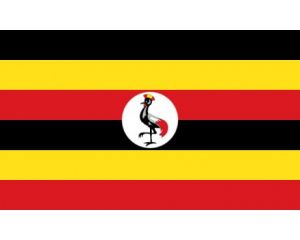Difference between revisions of "Language/Ganda/Grammar/Plurals"
m (Quick edit) |
m (Quick edit) |
||
| Line 125: | Line 125: | ||
🌍 Fun fact: The Ganda people have a unique way of greeting each other, called the empango. It involves a series of handshakes and greetings, each with a different meaning and purpose. | 🌍 Fun fact: The Ganda people have a unique way of greeting each other, called the empango. It involves a series of handshakes and greetings, each with a different meaning and purpose. | ||
== Sources == | |||
* [https:// | <span class='maj'></span> | ||
==Sources== | |||
* [https://www.merriam-webster.com/dictionary/Ganda Ganda Definition & Meaning - Merriam-Webster] | |||
{{#seo: | {{#seo: | ||
Revision as of 15:00, 12 March 2023
Hi Ganda learners! 😊
In this lesson, we will dive into the fascinating world of plurals in Ganda!
If you want to practice your Ganda skills with native speakers, don't forget to check out Polyglot Club. You can also find native speakers and ask them any questions!
Introduction
In Ganda, plurals are formed by adding suffixes to singular nouns. There are three main plural suffixes: -ba, -nga, and -zi. Each suffix is used in certain situations, depending on the noun's class.
As you may remember, Ganda nouns are organized into 16 different classes, each with different prefixes and singular-plural suffix pairs. To learn more about noun classes in Ganda, check out our Grammar lesson on the topic.
In this lesson, we will focus on the plural suffixes and how they are used. We will also provide some interesting cultural information and examples to help you understand these concepts better.
🌍 Fun fact: The Ganda people are the largest ethnic group in Uganda, and their language, also known as Luganda, is one of the country's official languages.
-ba plurals
The -ba suffix is used with noun classes 6, 7, 8, 9, and 10. It is also used with several exceptional nouns that belong to other classes. The -ba suffix indicates a plural of people or animals that have a human-like appearance or characteristics.
Here are some examples of nouns that take the -ba suffix:
| Ganda | Pronunciation | English |
|---|---|---|
| omwana | ɔmuː-ana | child |
| omukazi | ɔmuː-ka-zi | woman |
| ekitabo | eki-ta-bo | book |
| ensi | e-nsi | land |
And here are the plurals using the -ba suffix:
| Ganda | Pronunciation | English |
|---|---|---|
| abaana | a-ba-ana | children |
| abakazi | a-ba-ka-zi | women |
| ebitabo | e-bi-ta-bo | books |
| ensiibye | e-nsi-i-bye | lands |
🌍 Fun fact: The Ganda people have a rich oral tradition, and many of their stories feature animals with human-like qualities. An example is the story of Kibuka, the warthog who was a great warrior and leader.
Now, let's see how the other plural suffixes work.
-nga plurals
The -nga suffix is used with noun classes 1, 2, 3, 4, 11, and 14. It is also used with several exceptional nouns that belong to other classes. The -nga suffix indicates a plural of objects and things that do not have a human-like appearance or characteristics.
Here are some examples of nouns that take the -nga suffix:
| Ganda | Pronunciation | English |
|---|---|---|
| akaka | a-ka-ka | chair |
| akawuka | a-ka-wu-ka | pen |
| ente | e-nte | cow |
| omusajja | ɔ-mu-sa-ja | man |
And here are the plurals using the -nga suffix:
| Ganda | Pronunciation | English |
|---|---|---|
| amaka | a-ma-ka | chairs |
| emikawuka | e-mi-ka-wu-ka | pens |
| enge | e-nge | cows |
| abasajja | a-ba-sa-ja | men |
🌍 Fun fact: The Ganda people have a rich musical tradition, with rhythms and instruments that are unique to their culture. One of the most popular instruments is the Ndongo, a long drum that is played with two sticks.
Now, let's move on to the last plural suffix.
-zi plurals
The -zi suffix is used with noun classes 5, 12, and 13. It is also used with several exceptional nouns that belong to other classes. The -zi suffix indicates a plural of mass nouns, such as liquids, powders, and grains.
Here are some examples of nouns that take the -zi suffix:
| Ganda | Pronunciation | English |
|---|---|---|
| ensasi | e-nsa-si | salt |
| ekyerezo | e-kye-re-zo | sugar |
| olutalo | o-lu-ta-lo | war |
And here are the plurals using the -zi suffix:
| Ganda | Pronunciation | English |
|---|---|---|
| ensaazi | e-n-saa-zi | salts |
| ebyerezo | e-byee-re-zo | sugars |
| amataalo | a-ma-taa-lo | wars |
🌍 Fun fact: The Ganda people have a strong sense of community, and many cultural events and gatherings are organized to celebrate their unity. One example is the Buganda Kingdom's annual Kabaka's Birthday Run, which brings together thousands of people from different parts of the country to run in honor of the king's birthday.
Now that you understand the rules for forming plurals in Ganda, it's time to practice using them in context. Let's practice with a dialogue!
- Person 1: Oli musajja olw'ebbiri? (Are you two men?)
- Person 2: Naffe tuba basajja. (Yes, we are men.)
🌍 Fun fact: The Ganda people have a unique way of greeting each other, called the empango. It involves a series of handshakes and greetings, each with a different meaning and purpose.
Sources
